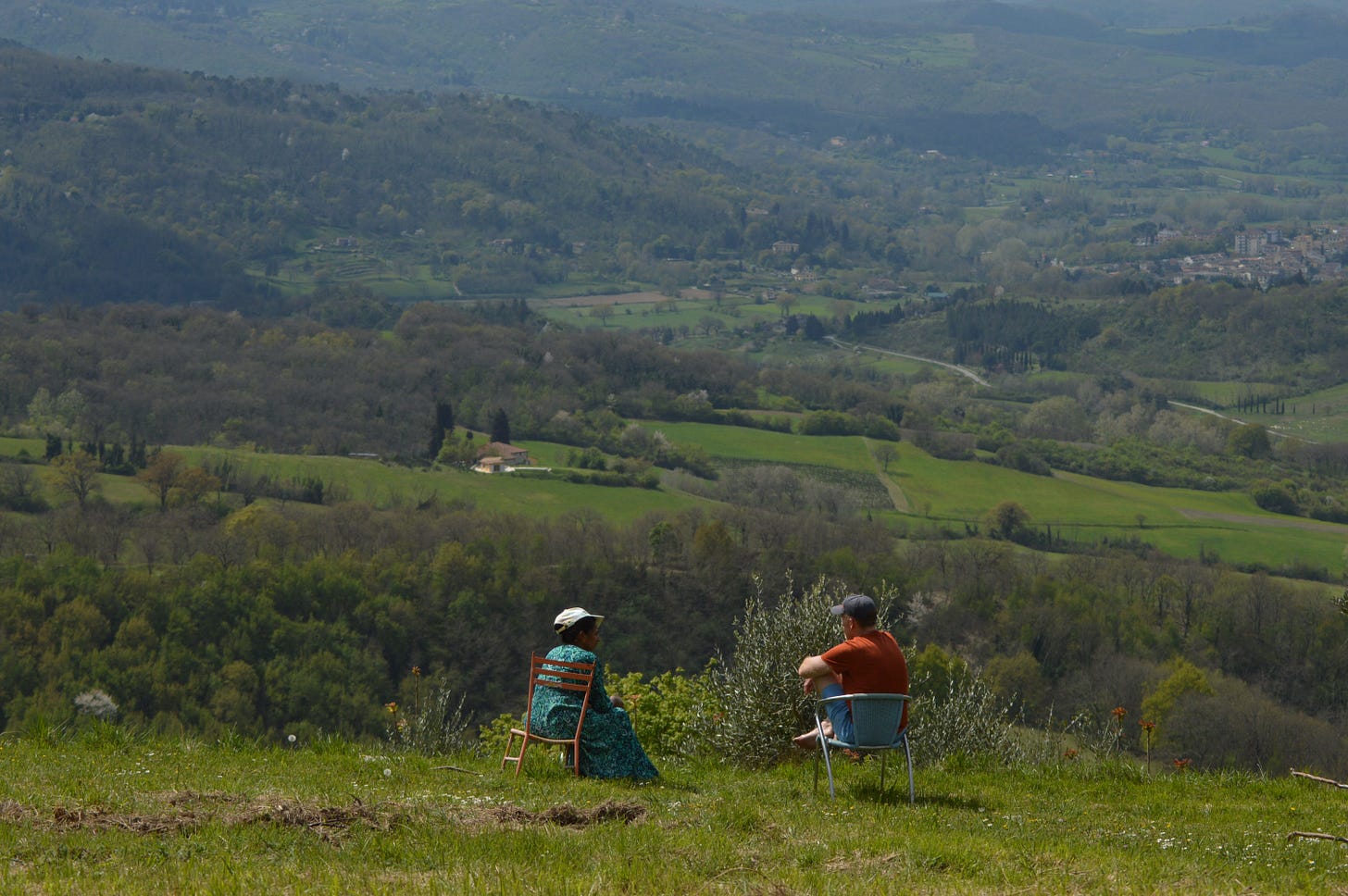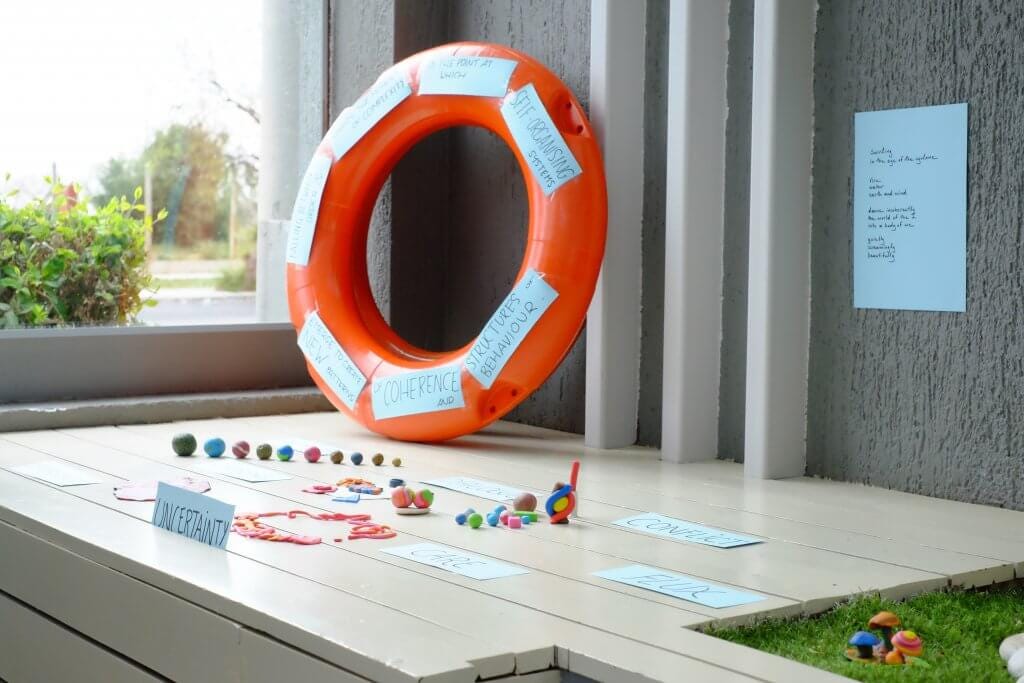Spaces to Remember
In a world filled with noise, delusional silver bullet solutions and quick fixes, I am seeking to hold space. No to fill, steer or shape the space. Just to simply hold it. Without spaces to heal, reconnect and remember, any “sustainable” innovation, impact strategy or social policy will fall flat on it’s hollow ass. We filled everything with so much noise that it’s hard to recognise that most things, institutions and policies we create are hollow. They lack humanness, empathy, compassion and love. They lack the deeply embodied understanding that we are living systems, part of and in constant relationship with smaller and larger living systems. Remembering this deep-rooted understanding, remembering our place as part of the web of life, remembering love, remembering oneness, remembering kindness, uncertainty, discomfort, realness, essence.
Remembering…. can’t be taught, it can only be held. I seek to hold spaces for people to remember all that we have buried under countless layers of individualism, external expectations and disconnecting beliefs. We are still there. We are still humans who can be a healthy, reciprocal part of the web of life. We are humans, animals, living beings; and therefore, we embody the wisdom of Mother Earth. We have forgotten how to dance to the rhythm of this wisdom. How to hold space for her, how to listen. But that doesn’t mean she is lost. We need spaces to remember her.
The Sensible Sweats
Space holding is daunting. Space holding for collapse-aware people, who more often than not face an existential crisis, is stomach-twistingly scary. Over the last couple of years, I have explored many pathways, and despite the sweaty hands and tight knotted stomach, space holding is the only one that makes sense to me. Why is it so scary? It’s not because of the common fear of public speaking. It’s the weight I feel of a responsibility to hold a space, enabling a transformative journey, without offering solutions or answers that can soften the discomfort but diminish the potential of the journey.
Space holding requires a balance between safety and discomfort, hospicing and evolving, unlearning and inspiration, reflexivity and curiosity, groundedness and abstractness. It’s a dance with the people I share space with, whom I don’t always know, and even if I do, I don’t know what steps they will take next (they don’t know either), what music will spark, what questions will stop them in their tracks. Space holding is slow and non-linear.
Being Held
Years ago, during my Master’s in Creativity and Innovation, I attended a week-long Science & Culture program shaped around the question. What’s the future of education? I was twenty-four at the time. Still deep in the educational system, committed to it, although with a significant dose of scepticism and a constant alarm bell going off in my head. Something about higher education, or education in general, felt deeply wrong, but I couldn’t put my finger to it, yet. Plus, in a society obsessed with academic degrees, I was blinded by the fact that I got into an international Master’s.
It was clear enough, though, that the education system has to change drastically. So off I went to Athens to immerse myself in the question. What’s the future of education? I joined the team with a post-humanist who had been working on her PhD for over twelve years, an ecologist, and a molecular scientist who focused on one particular element in the liquid of a petri dish. Within academics, it’s hard to find people further removed from each other than the four of us. The week was a rollercoaster of zooming in and zooming out. Of deconstructing everything all at once, including the physical space of a classroom and the ontological ground of universities in WEIRD countries, to holding on to the certainties of the educational space we were familiar with. Ironically, we had to end the program with a classical presentation of our findings, insights and conclusions.
As the week was coming to an end, the only point we agreed on was that our current assumptions and beliefs around education can’t shape the future of education. Students, like any other living being on this earth, are in a constant mutual learning relationship. Shaping the future of education from our current way of being diminishes the potential of the next generations. We asked ourselves, what if we created spaces for new and forgotten ways of mutual learning to emerge? For our presentation? We showed a video of a puffer fish with their innate ability to create mandalas in the sand. Followed by a silent invitation to a semi-abstract art installation.
Non-linear, emergent space holding
As I describe this week right now, I recognise how rare and beautiful it was to be held in a space like this. This realisation only came to me years later. Back then, I emerged from this week only to return to university and continue my studies. Now, seven years later, I finally feel like I have the space for the insights and questions of this experience to land. I don’t even remember the names of most of the facilitators of this week anymore. But I am deeply grateful to them. They showed me space holding is non-linear, slow and emergent. They helped me to recognise and accept that space holders often won’t witness or ever know about the insights or transformations they enabled. And that’s okay. Daunting but okay.
When I talk about space holding, I am not just referring to facilitators, coaches, community weavers and therapists. We are all space holders for each other.
You might have shared a true, heartfelt question with someone, without much of a response. Years later, on a walk through the forest, the question pops back into their head, and now this person is ready to hold it. The belief that we have to witness the outcomes of our efforts both diminishes our potential and the complexity of living beings.
“What the caterpillar calls the end of the world, the world calls a butterfly.” - Richard Bach,
How are you holding space for yourself and for others? What enables you to hold space? What role do stories, artworks, activities, music, rituals and practices play in your space holding? What if we collectively remember our ability to hold space? What conditions do we need to create for this remembering? How can we help each other to hold space for grief, dreaming, unlearning, hospicing, decolonisation, remembering, reconnecting and healing?
Space Holding at Taste The Shift
One of the spaces I hold with all my heart is Taste The Shift. Together with Anja von Emden, Jamie Prow and the participants of each gathering, we create spaces for remembering, play, discomfort, unlearning and dreaming. You can join the waitlist for Taste The Shift 2026 here, and we will reach out when we open for bookings and collaborations.




Yours is a moving and resonant piece. Spaces to Remember reclaims the art of presence in a world obsessed with outcomes and noise. The way you describe space holding as a balance between safety and discomfort, between unlearning and emergence, is refreshing. I was especially struck by the insight that “remembering can’t be taught, it can only be held.” Your reflections on the future of education, mutual learning, are profound. We need more voices like yours.